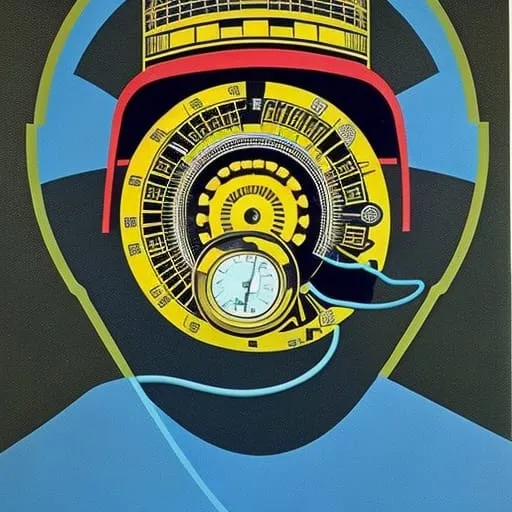After decades of messy, thoughtless design choices, corporations are using artificial intelligence to sell basic usability back to consumers
It’s about time someone pointed this out. Look at all the things phones got rid of in their UI:
- Clustering of icons on a desktop
- Application windowing
- Preferences located inside an application
(It also gives up a lot of context-based right-clicking, but I personally consider the right-click a bad UI design choice.)
Some things, like folders, are only barely implemented, with a host of features that we’ve had for decades removed. Ever tried to sort a phone group by creation date?
I’m writing this on an iPad, which I would love to use as my daily driver, but because it runs iPad OS, there are so many productivity and organizational features missing relative to Mac OS that I do most important things on the laptop.
Hate to break it to you, but these concerns are pretty specifically about iOS. Pretty much all of them have been addressed since the beginning and continue to be addressed today adequately on Android
I can do every single one of those things in my pixel (or just about any Android phone) if these things actually mattered you would have switched ages ago.
We have been trained to hoard apps and files, while tech companies have failed to provide any intuitive or easy way to organize them. And their solution isn’t to make things more organized or usable. No, our technological overlords have decided that disorganized chaos is fine as long as they can provide an automated search product to sift through the mess.
Ugh. Who’s the teen writing for Scientific American?
This same complaint was made back in the oughts about search. “Everyone should just categorize and properly tag documents!”
Turns out users hate that.
I’ve actually tried to do that with pictures/art, but none of the tools I have to do so make it easy. The Windows photo viewer from Windows XP, which I can’t seem to get anymore, was actually pretty okay at it.
But the truth is that even then it required more effort than I was willing to put in, and I was never able to anticipate every tag I would eventually want. If I didn’t feel like tagging something the moment I saved it, it generally never got tagged.
At this point an AI to do it would be amazing. I have thousands and thousands of pieces of potential character art, but when I want something with specific features it’s not easy to find.
You should still be able to use the photo viewer:
https://winaero.com/how-to-enable-windows-photo-viewer-in-windows-11/amp/
(Unless I misunderstood and there was a photo organization tool in XP that I forgot about)
The one that can still be enabled is still not the original version that had the tools I’m thinking of; I’ve tried several guides to re-enable it and it does give me an older photo viewer, but never quite the one I had back in XP.
Windows is fairly good at running old EXEs. Trying spinning up an XP vm and just yanking the old photo viewer.
I don’t even organize my physical mail. Ain’t no way I’m organizing my email.
The time spent manually organizing things was low hanging fruitb to automate away. I’m glad it’s mostly unnecessary now. The need to manually organize apps is the single biggest reason I never switched to iOS. (The search feature really doesn’t eliminate that need, IMO, whereas on Android it’s never been important).
I feel like most things degrade as a matter of scope-creep, while trying to implement features that are actually complex and non-trivial.
Take the unholy mess of modern Microsoft Office. MS Office might have been a good tool for a single purpose back in the 80s, but the addition of multiple generation/layers of features that have been halfway abandoned but kept for compatibilitys sake, make any more complex task non-trivial. There are multiple approaches for implementing templating MS Word, none of which are really good. MS Macros have been great… if you are trying to get arbitrary code execution on Windows machines. And collaboretive editing features include halfway abandoned sharing features and a half-baked Web Version of Office 365.
As a matter of fact I don’t believe this is purely out of corporate greed, but rather a lack of scope limitation during design. People don’t ask if they should, if they simply can do. We shouldn’t have macros inside of Text Documents, there should be another tool for that. We shouldn’t have SQL queries pulling into Excel Worksheets. We shouldn’t use Excel as a database, but people had to change names of biological genes to avoid these being autoformatted in Excel.
But as a matter of fact, in general one is limited to working with the tools one knows, so convincing someone to use the correct tool for a job will always be harder than just delivering additional features, that we know will make the overall product worse.
Something like the
Linuxunix philosophy of doing 1 thing and doing it well comes to mind. FOSS no less.That philosophy has never been successfully been applied in the GUI space and especially not in the Linux world. Bash/Shell gets away with it because it has pipes and scripting that allow you to plug different apps together to form something bigger. In the Windows world they tried something like that with OLE and NeXTSTEP did something with DisplayPostscript, but none of it stuck around to become a foundational layer for GUI apps the way pipes are for command line tools. These days all GUIs are back to being monolithic blobs.
Begs the question for gui’s then or?
I always wonder what another interaction scheme would look like if it weren’t for “click”, I’ve always wondered about tunnels or roads, like we do in real life, to continuously travel toward a destination, rather than discretely click.
Didn’t have to be this way. CLI is underrated as any computer dev knows, power is in the knowledge. How about we apply the AI search problem to cli commands, what happens then?
I always wonder what another interaction scheme would look like if it weren’t for “click”, I’ve always wondered about tunnels or roads, like we do in real life, to continuously travel toward a destination, rather than discretely click.
There is the filter graph or node graph, found in things like Unreal Blueprints, Blender or ComfyUI. That’s kind of the GUI version of a pipe and even quite a bit more powerful as you can have multiple inputs and outputs. But it’s just something individual apps implement, it’s not something any OS has as a native primitive.
For something a little more CLI-like, there is Archy, which is kind of like Emacs, where programs are just commands that operate on the same bit of data, not complete separate things, but that never made it past some prototypes and it’s hard to see how it could work for the whole OS, where you have to deal with a wide variety of file and data formats. It had a commercial predecessor with Canon Cat in 1987, but that also ended up a dead end.
Another thing is Project Xandau, this is more of an alternative to the WWW than just a GUI/OS, but it would have had some neat properties like links to and quotes from other documents being actual references to those documents, not copy&paste. But again, nothing but prototypes.
Unix shells just assume everything is text, which makes all the small tools possible. But the GUI world contains a lot more than just plain text, which makes it difficult to come up with any universal scheme that can have the same flexibility. Even HTML, which is the closed thing to an universal data format in the modern GUI world, fails quite miserably here as, as it ends up being just a format for content consumption, not a format that is used in the creation and management of the data.
At the current pace we’ll have AGI long before we have any real innovation in GUIs. Will probably end up with StarTrek like interface sooner or later where you just say what you want and the AI figures out how to get it, ChatGPT already isn’t that far off and can handle a lot of simple grep/sed like tasks quite well, even shell one liner can be produces with a reasonable rate of success. What’s is a way to let it access and operate on local data.
Sweet, thanks for the write up. Do you play with anything tool wise on this, I mean I constantly ask chatgpt for bash and python programs / logic, but that HTML idea sounds sorta fun. Where would that lead? Should it be even more standadized?
You have any other such methodologies that you seem to hold onto other than Unix, that are atomic and simple? Any fun blogs etc? I love stuff like this.
Where would that lead?
That’s the billion dollar question. Whoever figures that out and builds it will be the next Microsoft/Google/Apple/…
Microsoft, Adobe and a lot of other companies are starting to patch some AI features into their apps, but the thing that makes ChatGPT so interesting is that it is universal, it can generate code, cooking recipes and write short stories and it can do all of that at once. Having an AI be stuck in a single app feels limited compared to that. But at the same time ChatGPT itself is locked in its own little text-window, which is limiting it as well. ChatGPT-style AI that can operate like a full OS, that would be the holly grail and I am sure plenty of companies are working on something like that.
Not sure about blog, but here are a couple of random vaguely related books and videos on the topic:
- The Design of Everyday Things
- The Human Interface - this is about the concepts later used in Archy
- Steve Jobs NextStep tour
- Zoomable Interfaces
- Eagle Mode - Zoomable Interface Software
- The Mother of All Demos, presented by Douglas Engelbart (1968)
- Ivan Sutherland Sketchpad Demo 1963
- Alan Kay: Doing with Images Makes Symbols
- Ted Nelson demonstrates Xanadu Space
- XMLTerm - XML based terminal
- VR Interface Design Manifesto (2014)
I find the older stuff especially interesting as it has a more clean-slate approach to interface design and isn’t stuck in modern conventions.
So glad I asked. Thanks a lot, right up my alley!
Here is an alternative Piped link(s):
Eagle Mode - Zoomable Interface Software
The Mother of All Demos, presented by Douglas Engelbart (1968)
Ivan Sutherland Sketchpad Demo 1963
Alan Kay: Doing with Images Makes Symbols
Ted Nelson demonstrates Xanadu Space
Piped is a privacy-respecting open-source alternative frontend to YouTube.
I’m open-source; check me out at GitHub.
That’s going away with people like poettering running the show.
What show?
There’s a lot to dislike about systemd, and some things to like. Most big Linux distributions are using it now; in regards to this comment though, systemd is a fast executable trying to handle many core system jobs at once. Instead of Cron, openRC startup scripts, networkmanager for networking… Systemd is trying to do it all.
That’s the UNIX philosophy, not the Linux philosophy. That idea predates Linux by like a decade.
Apologies, but I’ll also take it since Linux is a subset of Unix. But right you are, it originates there… But is Linux the most interaction we have with Unix like OS in this day and age?
Probably. Mac is Unix like but basically all server infrastructure is running on Linux.
I wonder when they’ll use AI in response to missing headphone jacks. (dropping them was like if you amputated your legs just because cars and electric wheelchairs exist)








